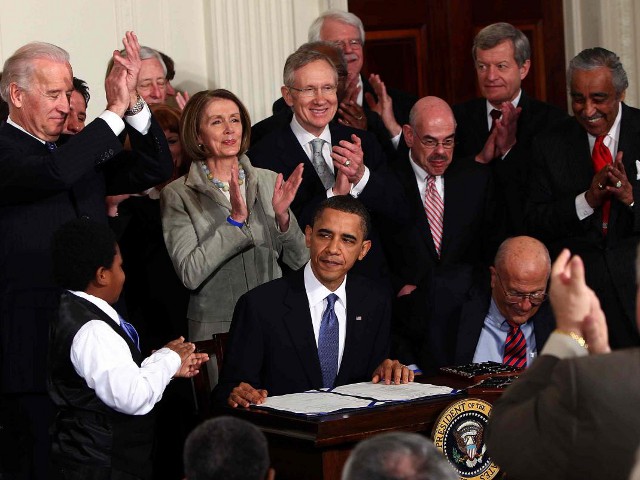In a complex ruling, the Supreme Court has largely upheld the controversial Obamacare law. The Court struck down the individual mandate as an unconstitutional penalty under the Commerce Clause, but upheld it as a permissible tax. It also limited the expansion of Medicaid spending under Obamacare, which states had argued was a violation of the Tenth Amendment.
Overall, the decision is a political victory for the Obama administration–but may energize conservatives to turn out to the polls in November, both to back Republican Mitt Romney’s promise to repeal the law, and to prevent Obama from packing the Court with liberal justices.
There were four issues to be decided in the case, formally known as NFIB v. Sebelius:
1. Did the court have jurisdiction to hear the case–or did the Anti-Injunction Act (AIA) put the case off limits until the law would have taken full effect in 2014? (Answer: Yes)
2. Does the Commerce Clause of the Constitution prohibit the federal government from imposing an individual mandate requiring every individual to buy health insurance? (Answer: Yes–but the mandate is permissible as a tax)
3. Does the Tenth Amendment prevent Obamacare from forcing state governments to pay for a massive expansion of the Medicaid program? (Answer: Yes, but only narrowly)
4. Are the mandate or the Medicaid expansion “severable” from the rest of the law, such that striking down one or both of those sections does not mean striking down the law as a whole? (Answer: Irrelevant)
The majority opinion was written, as expected, by Chief Justice John Roberts, who joined the Court’s liberal justices. Justices Antonin Scalia, Clarence Thomas, Samuel Alito, and Anthony Kennedy joined in dissent.

COMMENTS
Please let us know if you're having issues with commenting.